Neale Sourna's Blog, page 12
May 19, 2015
Laurell K Hamilton: Author answers on character writing. Dead Ice: Jean-Claude
http://www.laurellkhamilton.org/2015/05/dead-ice-jean-claude/
In the lead up to Dead Ice hitting the shelves, I’m going to be doing a special blog series. I’ll be answering three of the most common questions I get about a character. I’ll be trying to include something not as commonly known with each answer.
Then, you get a sneak peek of that character from Dead Ice. To kick off the blog series, we start with Jean-Claude – of course.

Question: Is Jean-Claude named after Jean-Claude Van Damme?
Answer: No.
Secret to share: In fact, Jean-Claude’s birth name wasn’t Jean-Claude. Vampires only had one name in Old Europe, so if there was already an older vampire with your name, your master could force you to pick a new name or even choose one for you.
Quest: Why is Jean-Claude French?
Answer: Because he refused to be Spanish, the way I planned.
Secret to Share: Jean-Claude was first created in the late 1980’s. That was close enough to my school days that I could still read Spanish and understand it if it was spoken to me – slowly. Please, do not try to speak Spanish to me now, I am too out of practice. My pronunciation must still be good though, because Spanish speakers will still break into rapid Spanish if I answer any question in their native language.
As for my knowledge of French, all I can do is apologize for all of it in the early Anita Blake novels because my language “expert” wasn’t nearly as good at French as they told me they were, and well, some phrases are just awful. As my own French has grown marginally better, even I don’t know what one or two phrases were meant to convey. *face palm* It taught me to be more certain that my experts in any field actually were experts.
I still pronounce French badly, so much so that I’ve been told by more than one native French speaker that I can learn all the French I want, but I will never speak it as fluently and musically as I do Spanish. In fact, I’ve been told that I speak French as if Spanish was my first language. It was my second, but apparently it has left it’s linguistic mark.
Question: Didn’t I feel that making Jean-Claude French was too much Anne Rice’s territory, because of Interview with the Vampire?
Answer: Yes, I did, which is why I wanted him to be Spanish; but the harder I fought to force him into a nationality that he didn’t want, the more illusive he was on paper. I couldn’t get my main vampire to cooperate on paper until I got out of his way and let him be French. Only then did he show up in his full glory and write smoothly on paper. He showed up in his typical black and white clothing with the frilly shirt, skin tight pants, and great boots.
I did not choose his clothes; he did. Though in an effort to keep his clothes up to his standards I would watch the Fashion Channel for the first time and read my first copy of Vogue. I joke that Jean-Claude taught me to walk in high heels; he helped me understand the magic of gliding in heels. I don’t envision ever being as elegant as he is, but writing and living with him in my head for a couple of decades has helped up my grace and poise content.
Though he shakes his head over me sometimes, just like he does Anita. He’s been an interesting influence on both her fictional wardrobe and my real life one. People will ask if my husband and I are in a band, or if we’re visiting from New York, as we get off the plane here in St. Louis. I’m not sure exactly what it means that we get asked that so often, but I know that it’s Jean-Claude’s influence, or rather me writing him that’s changed the way I view clothes.
Sneak Peek from Dead Ice:
“Perhaps modern people do not speak of it so bluntly, but it is the age-old game of chase and capture. There is always someone in a relationship who begins the hunt for someone’s heart, and the pursued must decide whether she wishes to be easily caught, or to be a long and difficult hunt.” He smiled when he said it.
I frowned at him. “Have you ever not gotten to sleep with someone you set your sights on?”
He raised the dark, graceful curve of one eyebrow. “You led me on the merriest chase of anyone I had ever met, ma petite.”
In the lead up to Dead Ice hitting the shelves, I’m going to be doing a special blog series. I’ll be answering three of the most common questions I get about a character. I’ll be trying to include something not as commonly known with each answer.
Then, you get a sneak peek of that character from Dead Ice. To kick off the blog series, we start with Jean-Claude – of course.

Question: Is Jean-Claude named after Jean-Claude Van Damme?
Answer: No.
Secret to share: In fact, Jean-Claude’s birth name wasn’t Jean-Claude. Vampires only had one name in Old Europe, so if there was already an older vampire with your name, your master could force you to pick a new name or even choose one for you.
Quest: Why is Jean-Claude French?
Answer: Because he refused to be Spanish, the way I planned.
Secret to Share: Jean-Claude was first created in the late 1980’s. That was close enough to my school days that I could still read Spanish and understand it if it was spoken to me – slowly. Please, do not try to speak Spanish to me now, I am too out of practice. My pronunciation must still be good though, because Spanish speakers will still break into rapid Spanish if I answer any question in their native language.
As for my knowledge of French, all I can do is apologize for all of it in the early Anita Blake novels because my language “expert” wasn’t nearly as good at French as they told me they were, and well, some phrases are just awful. As my own French has grown marginally better, even I don’t know what one or two phrases were meant to convey. *face palm* It taught me to be more certain that my experts in any field actually were experts.
I still pronounce French badly, so much so that I’ve been told by more than one native French speaker that I can learn all the French I want, but I will never speak it as fluently and musically as I do Spanish. In fact, I’ve been told that I speak French as if Spanish was my first language. It was my second, but apparently it has left it’s linguistic mark.
Question: Didn’t I feel that making Jean-Claude French was too much Anne Rice’s territory, because of Interview with the Vampire?
Answer: Yes, I did, which is why I wanted him to be Spanish; but the harder I fought to force him into a nationality that he didn’t want, the more illusive he was on paper. I couldn’t get my main vampire to cooperate on paper until I got out of his way and let him be French. Only then did he show up in his full glory and write smoothly on paper. He showed up in his typical black and white clothing with the frilly shirt, skin tight pants, and great boots.
I did not choose his clothes; he did. Though in an effort to keep his clothes up to his standards I would watch the Fashion Channel for the first time and read my first copy of Vogue. I joke that Jean-Claude taught me to walk in high heels; he helped me understand the magic of gliding in heels. I don’t envision ever being as elegant as he is, but writing and living with him in my head for a couple of decades has helped up my grace and poise content.
Though he shakes his head over me sometimes, just like he does Anita. He’s been an interesting influence on both her fictional wardrobe and my real life one. People will ask if my husband and I are in a band, or if we’re visiting from New York, as we get off the plane here in St. Louis. I’m not sure exactly what it means that we get asked that so often, but I know that it’s Jean-Claude’s influence, or rather me writing him that’s changed the way I view clothes.
Sneak Peek from Dead Ice:
“Perhaps modern people do not speak of it so bluntly, but it is the age-old game of chase and capture. There is always someone in a relationship who begins the hunt for someone’s heart, and the pursued must decide whether she wishes to be easily caught, or to be a long and difficult hunt.” He smiled when he said it.
I frowned at him. “Have you ever not gotten to sleep with someone you set your sights on?”
He raised the dark, graceful curve of one eyebrow. “You led me on the merriest chase of anyone I had ever met, ma petite.”
Published on May 19, 2015 17:43
May 18, 2015
Press Release: NEW EBOOK "EXTRA CLEVELAND" FOR LATE SPRING 2015 RELEASE
FOR IMMEDIATE RELEASE:CONTACT:Neale SournaPIE: Perception Is Everything216-772-1302ns@pie-percept.comwww.PIE-Percept.com
NEW EBOOK "EXTRA CLEVELAND" FOR LATE SPRING 2015 RELEASE
Cleveland, Ohio, May 19, 2015 - Film Extras are the unsung heroes. They normally receive no applause or recognition, whether they answer the call to duty by Marvel Studios, The Cleveland Film Commission or a local independent or student filmmaker. They get a thank you, snacks, and sometimes get paid a bit of cash. And bragging rights.
Neale Sourna tells you some of the fun and discomfort of being a film extra; whether in the Midwest or elsewhere. Would you like to spend a day shoot in a local neighborhood in the cold Cleveland OH winter standing for months May and August for a cable TV film straight from the horrific news about found kidnapped women Michelle Knight, Gina DeJesus, and Amanda Berry, with a half a day’s notice? Or decide to go on a local independent shoot through your Facebook Cleveland Extra group at a local landmark theatre for a time travel film? Or do a week’s worth of employment sitting or sunburn and disaster and running for a full day for the first union of Captain America, Thor, Iron Man, Black Widow, and her man Hawkeye. Oh, and Nick Fury and Agent Coulson and Maria Hill? And work with a star come to earth?
EXTRA CLEVELAND: A FILM EXTRA’S GUIDE TO BEING PROFESSIONAL BACKGROUND [in PDF ebook, other formats coming] is for people who want to be or are working film extras who want to improve their knowledge and comprehension of the craft, its requirements, and possible problems through active author / publisher Neale Sourna’s past experiences and researches. Readers should receive illumination in what to expect and how to be a better Professional Film Extra and how to grow their own career or one shot chance in being a film extra. From Neale Sourna (www.neale-sourna.com) through PIE: Perception Is Everything (www.pie-percept.com).
ABOUT PIE: Perception Is EverythingPIE: Percept publishes fiction and nonfiction for adults, all by award-winning author Neale Sourna. PIE: Percept was founded in 2001 and published Sourna’s first novel’s, HOBBLE, first edition in 2002. At PIE: Perception Is Everything we believe in: "Doing for the mind, what the body shouldn't" and "Thoughtful Entertainment You Can FEEL."
- END -
PRESS RELEASE
Published on May 18, 2015 23:47
April 30, 2015
April 20, 2015
NEW EBOOK AVAILABLE: NEALE SOURNA’S "Libidinous 1A - Writing Lessons: Author Notes, Short Stories, Poems, and Novel Excerpts"
 http://libidinous.neale-sourna.com/
http://libidinous.neale-sourna.com/
FOR IMMEDIATE RELEASE:CONTACT: Neale Sourna (neel SORE-nah)PIE: Perception Is Everything216 - 772 - 1302ns@pie-percept.comwww.PIE-Percept.com, www.PIE-PerceptionIsEverything
NEW EBOOK AVAILABLE: NEALESOURNA’S "Libidinous 1A - Writing Lessons: Author Notes,Short Stories, Poems, and Novel Excerpt"
Cleveland, Ohio, 20 April 2015 - This new book, a collection of stimulating romantic erotica short story fiction, novel excerpts, and poems, previously published, which now includes the addition of previous story editions and author notes, about how each arousing story came to be and influences upon each story. Also included are comparisons, an older version of most of these tales in order for you, the reader to compare the original version with the polished published version.
Have you ever wondered where an author got an idea? Or how they mixed things together you’d never thought could meld well together, but do? Or how characters are built up within an author’s mind, from both “real” elements they see around them and their own emotional experiences? This is your pleasurable little step onto that rich, grassy, flowering field of imagination fostered by intellectual breezes, emotional rain, and the solid humanity that grounds it all together.
LIBIDINOUS 1A – WRITINGLESSONS: AUTHOR NOTES, SHORT STORIES, POEMS, AND NOVEL EXCERPTS gives you the “inside the author’s mind” for those interested in crafting literary stories and erotic tales and is the expanded version of LIBIDINOUS 1: SHORT STORIES, POEMS, AND NOVEL EXCERPTS; the later (LIB 1) with the same stories but WITHOUT insights into the writer’s mind and crafting. LIB 1A shows you a writer’s growth from original stories, when the beginning author felt they were polished enough to submit to publishers, to newer versions, the polished gems, rewritten and published years later, revealing a working author’s continuing development.
Libidinous 1A - Writing Lessons: Author Notes,Short Stories, Poems, and Novel Excerpts ISBN 978-1-938903-26-7 ebooks
Print version coming soon.
ABOUT PIE: Perception IsEverythingPIE: Percept publishes romantic erotica fiction, fiction, and nonfiction all by award-winning author Neale Sourna. PIE: Percept was founded in 2001 and published Sourna’s first novel’s, HOBBLE, first edition in 2002. At PIE: Perception Is Everything we believe in: "Doing for the mind, what the body shouldn't" and "Thoughtful Entertainment You Can FEEL."
Distributed by Lightning Source - END -
PRESS RELEASE
SEOromantic erotica, erotica, fiction, neale Sourna, pie publishing, pie percept publishing, press release, new ebook release, distributor
Published on April 20, 2015 16:22
April 14, 2015
NEW EBOOK RELEASE: NEALE SOURNA'S "Libidinous 1A - Writing Lessons: Author Notes, Short Stories, Poems, and Novel Excerpt"
FOR IMMEDIATE RELEASE:CONTACT: Neale Sourna (neel SORE-nah)PIE: Perception Is Everything216-772-1302ns@pie-percept.comwww.PIE-Percept.com, www.PIE-PerceptionIsEverything
NEW EBOOK RELEASE: NEALE SOURNA'S "Libidinous 1A - Writing Lessons: Author Notes, Short Stories, Poems, and Novel Excerpt"
Cleveland, Ohio, 15 April 2015 - This new book, a collection of stimulating romantic erotica short story fiction, novel excerpts, and poems, previously published, which now includes the addition of previous story editions and author notes, about how each arousing story came to be and influences upon each story. Also included are comparisons, an older version of most of these tales in order for you, the reader to compare the original version with the polished published version.
Have you ever wondered where an author got an idea? Or how they mixed things together you’d never thought could meld well together, but do? Or how characters are built up within an author’s mind, from both “real” elements they see around them and their own emotional experiences? This is your pleasurable little step onto that rich, grassy, flowering field of imagination fostered by intellectual breezes, emotional rain, and the solid humanity that grounds it all together.
LIBIDINOUS 1A – WRITING LESSONS: AUTHOR NOTES, SHORT STORIES, POEMS, AND NOVEL EXCERPTS gives you the “inside the author’s mind” for those interested in crafting literary stories and erotic tales and is the expanded version of LIBIDINOUS 1: SHORT STORIES, POEMS, AND NOVEL EXCERPTS; the later (LIB 1) with the same stories but WITHOUT insights into the writer’s mind and crafting. LIB 1A shows you a writer’s growth from original stories, when the beginning author felt they were polished enough to submit to publishers, to newer versions, the polished gems, rewritten and published years later, revealing a working author’s continuing development.
Libidinous 1A - Writing Lessons: Author Notes, Short Stories, Poems, and Novel ExcerptsISBN 978-1-938903-26-7 ebooks
Print version coming soon.
ABOUT PIE: Perception Is EverythingPIE: Percept publishes romantic erotica fiction, fiction, and nonfiction all by award-winning author Neale Sourna. PIE: Percept was founded in 2001 and published Sourna’s first novel’s, HOBBLE, first edition in 2002. At PIE: Perception Is Everything we believe in: "Doing for the mind, what the body shouldn't" and "Thoughtful Entertainment You Can FEEL."
- END -
PRESS RELEASE
SEOromantic erotica, erotica, fiction, neale Sourna, pie publishing, pie percept publishing, press release, new ebook release
Published on April 14, 2015 13:19
March 17, 2015
50 SHADES OF GREY Thinking: Are the Alarmists Missing the Important Layers of This Fiction?
50 SHADES OF GREY Thinking: Are the Alarmists Missing the Important Layers of This Fiction?
Love is not separate from lust in a marriageable relationship.
Is the myth of virgin taming the wild thing lost on us today?
What is an inappropriate sexual first time? And all the blood and pain of a "traditional" wedding night is bull, and unnecessary except to those who think blood and pain prove virginity, not impatience and lack of foreplay.
Trust, whips, bindings. Do you trust your lover / spouse / significant other / partner?
What is the emotional and physical cost of redemption -- with your help -- for someone you love?
We're all piggybacking on the interest of this "controversy" but is the alarmists for domestic violence going too far in apparently proposing the attitude that properly agreed upon bondage, dominance, submission, and sado-masochistic behaviors LEAD to true violence and domination in physically intimate relationships without a woman's inability to stand for herself and say no.
That's not what I've learned from the news about bad and violent marriage, date rape, and war crimes. The nonplay crimes.
The limits change and can be misunderstood, that is a the end of the first book; Anastasia's misunderstanding what her limits are, and Christian's misunderstanding of his own motives (properly diagnosed, but he rejects that truth and internalizes the incorrect negative).
Are you certain she's not a sneaky dominant, rewriting or discarding his long held rules? And he the actual submissive submitting to her changes?
And never underestimate the charming fiction that we can influence and change someone with love; it can happen, but is not something you can count on or depend. But romantic female fiction is being loving and effective in that love; romantic male fiction is being hero and leader (soldier, warrior, cowboy, pirate, special ops).
Love is not separate from lust in a marriageable relationship.
Is the myth of virgin taming the wild thing lost on us today?
What is an inappropriate sexual first time? And all the blood and pain of a "traditional" wedding night is bull, and unnecessary except to those who think blood and pain prove virginity, not impatience and lack of foreplay.
Trust, whips, bindings. Do you trust your lover / spouse / significant other / partner?
What is the emotional and physical cost of redemption -- with your help -- for someone you love?
We're all piggybacking on the interest of this "controversy" but is the alarmists for domestic violence going too far in apparently proposing the attitude that properly agreed upon bondage, dominance, submission, and sado-masochistic behaviors LEAD to true violence and domination in physically intimate relationships without a woman's inability to stand for herself and say no.
That's not what I've learned from the news about bad and violent marriage, date rape, and war crimes. The nonplay crimes.
The limits change and can be misunderstood, that is a the end of the first book; Anastasia's misunderstanding what her limits are, and Christian's misunderstanding of his own motives (properly diagnosed, but he rejects that truth and internalizes the incorrect negative).
Are you certain she's not a sneaky dominant, rewriting or discarding his long held rules? And he the actual submissive submitting to her changes?
And never underestimate the charming fiction that we can influence and change someone with love; it can happen, but is not something you can count on or depend. But romantic female fiction is being loving and effective in that love; romantic male fiction is being hero and leader (soldier, warrior, cowboy, pirate, special ops).
Published on March 17, 2015 21:48
March 8, 2015
Game of Thrones Jon Snow family (supposition) by Neale Sourna
I've been on this thought since I read the first book and watched the first season, and the feeling behind the thought keeps getting more certain, or probable, since the book series is still being written and the TV series doesn't have to match it exactly, but has been closer than TRUE BLOOD / SOOKIE STACKHOUSE SERIES.
My supposition is this:
GoT Bastard and warg Jon Snow is not Eddard / Ned Stark's son but his stepson and nephew by blood, being his sister, the secret warg, Lady Lyanna Stark's child by Crown Prince RhaegarTargaryen or soon to be King Robert Baratheon.
Book VI not yet available.
My supposition is this:
GoT Bastard and warg Jon Snow is not Eddard / Ned Stark's son but his stepson and nephew by blood, being his sister, the secret warg, Lady Lyanna Stark's child by Crown Prince RhaegarTargaryen or soon to be King Robert Baratheon.
Book VI not yet available.
Published on March 08, 2015 20:02
March 4, 2015
Ebooks / Books from PIE: Perception Is Everything and Neale Sourna
Published on March 04, 2015 21:08
February 19, 2015
Writing in Games: It’s Much More Than Narrative_Why some of the best writing has nothing to do with character or story. By Tim Biggs
22 Jun 2014 Warning: This feature contains a minor spoiler for The Last of Us: Left Behind.
Writing can make or break a game. It takes many forms - from dialogue to in-game literature, voiceovers or even scripted environmental events - but in almost all cases it aims to move the game along, distil complexity into something meaningful, give justifications for gameplay conceits and keep the player attached to the characters and scenarios through story.
When it comes to pointing out ‘good writing’ in games though, we don’t always look to the examples that do these things best. More often than not we associate ‘good writing’ with well-crafted story content and entertaining text or dialogue, and while this obviously isn’t a negative thing in and of itself, it leaves room for the idea that there are games with great, skilful writing that we don’t think of as such because they aren’t literary or don’t tell a gripping story. So is there a problem with the way we evaluate the quality of writing in games?
With the exception of pure narrative, writing in games must be function first; less to do with crafting a story and more to do with non-literary concerns like player retention and awareness.
Often when we talk about writing, we refer to the bits between or on top of the gameplay, where the characters talk to one another or you read some text to gain exposition. Yet while that kind of writing is easier for us to identify and analyse (by looking for the indicators of quality we recognise from literature and other media), the more game-specific, more technical (and depending on the game, more vital) form of writing that takes place during and informs the gameplay can often be overlooked.
With the exception of pure narrative (for example in a cutscene), writing in games must be function first, which is to say it’s less to do with crafting a story and more to do with non-literary concerns like player retention and awareness. Concerns like how does a player know the only way to exit the room is through a ladder in the roof? What does an AI character say to alert the player to incoming danger? How will the game explain to the player that a particular area is off-limits?
Whether these concerns are addressed seamlessly depends almost entirely on the quality of the writing which, like most other art in games, is usually there to build part of the scaffolding as much as part of the pretty façade. For example having a character deliver a “no, this doesn’t go here” or a “just three more to go” or heaven forbid a “hey, listen” serves a gameplay purpose rather than a literary one, and so should be judged on whether that purpose is realised.

Ride as fast as you like, you can't get away from Navi...
Even if an offhand character remark gives you exactly the information you need at the right time to have things click into place and make you feel like a genius or a badass, such writing is unlikely to be called out as ‘good’, and I think it boils down to the fact that this kind of functional writing only really exists in video games.
As a baseline, consider Naughty Dog's Uncharted trilogy and The Last of Us, which are generally very well regarded in terms of writing and storytelling. This can be seen most recently in The Last of Us Left Behind DLC, in which the narrative cleverly negotiates our familiarity with coming-of-age stories.
Although stories of this type tend to be predictable and hard to pull off owing to the sheer number of times they’ve been told, the characterisation and literary restraint in Left Behind allows an experience that feels exciting and surprising while still managing to convey something deeply universal. Had the characters been written more salaciously or more in line with traditional young love stories, the player would surely have anticipated this and the impact of Left Behind would have been undermined.

Such a believable relationship.
Stories like these show that video games are just as capable of incredible storytelling as film and literature, but it’s plain to see that the cleverness and skill with which the game’s narrative aspects are handled are satisfying to us in all the ways we recognise from those purely narrative forms. We recognise them as hallmarks of good storytelling. So what about the cleverness and writing skills unique to video games as a form? For an example of that I’m going to jump to a game similar to The Last of Us in many ways, but also very different.
The Gears of War games, not always regarded as having ‘good writing’ (“Never thought it would end like this, huh Maria!?”) make an interesting example in my argument that the way we measure writing quality in games might center the discussion mostly on the overtly artistic or narrative kind.
Whether or not the story being told in the latest game - Judgment - was of a high quality in the traditional sense, the writing was exceptional. Take the declassified missions for example, which appeared in each chapter and offered an optional set of parameters to the player, increasing the challenge but also the reward.
The parameters obviously had to be fun from a gameplay point of view, but their in-game justification required scenarios that made sense to that exact part of the narrative, could be left out entirely if the player so chose, and delivered a reasonable explanation for why visibility was suddenly limited or the mission had to be accomplished under a certain time constraint. In addition to this, voiceover had to be written that explained these ludicrous happenings from the perspective of one of the main characters, bringing in their own perspective and personality.
In the end the player has an understanding of the option, the consequences and the story, and they’ve stayed immersed in the artifice of the game throughout. It’s a great (if not very subtle) example of games writing acting as the carpenter’s hammer rather than the novelist’s pen. While none of it hit you in the gut, brought a tear to your eye or made you gasp with an unexpected twist, it was good writing nonetheless.

Turns out DudeBros can also be effective communicators too.
Zooming in from the overarching scenario-type writing to the minute-to-minute experience kind, you can also see a vital role that’s easy to overlook. We’ve all had experiences where the entirety of what’s happening in a game fails to be communicated to us coherently, either because we haven’t grasped an important mechanic or are just not looking at it the intended way.
Often in fast-paced action-heavy games where that doesn’t happen a lot (like Gears), it’s because your focus and understanding of the scenario is being shaped by mission directives or context-specific character speech. For all its malignment, “RAZOR HAIL” is a pretty stunningly effective thing for a character to scream at you if you need to be told “keep yourself covered from above at all times or you’ll be ripped to shreds”.
Whether a particular game is built around mechanics or a story at its core (or both), the function of this seemingly incidental writing is to connect the player in their limited perspective to their place in the immediate scenario and the wider game world.
A poorly written or communicated aspect of the game will break the player’s ability to experience the game as intended, even as the disruptive and unpredictable tendencies of the player will break any writer’s attempt to focus attention too absolutely or tell a story too linearly. Yet for all this, if the writing of a game is absolutely nailed the player will hardly even notice it’s there while they’re playing.
It’s this unique relationship between players and game designers - each affecting the way the other creates and experiences - that makes the supporting writing in games so largely unlike the writing in any other media, and it’s why that writing is just as worthy and just as deserving of our analysis and attention as the more literary kind we tend to focus on.

Tim is a freelance writer based in Sydney. You can catch up with him on Twitter and why not join the whole IGN Australia team on Facebook?
Writing can make or break a game. It takes many forms - from dialogue to in-game literature, voiceovers or even scripted environmental events - but in almost all cases it aims to move the game along, distil complexity into something meaningful, give justifications for gameplay conceits and keep the player attached to the characters and scenarios through story.
When it comes to pointing out ‘good writing’ in games though, we don’t always look to the examples that do these things best. More often than not we associate ‘good writing’ with well-crafted story content and entertaining text or dialogue, and while this obviously isn’t a negative thing in and of itself, it leaves room for the idea that there are games with great, skilful writing that we don’t think of as such because they aren’t literary or don’t tell a gripping story. So is there a problem with the way we evaluate the quality of writing in games?
With the exception of pure narrative, writing in games must be function first; less to do with crafting a story and more to do with non-literary concerns like player retention and awareness.
Often when we talk about writing, we refer to the bits between or on top of the gameplay, where the characters talk to one another or you read some text to gain exposition. Yet while that kind of writing is easier for us to identify and analyse (by looking for the indicators of quality we recognise from literature and other media), the more game-specific, more technical (and depending on the game, more vital) form of writing that takes place during and informs the gameplay can often be overlooked.
With the exception of pure narrative (for example in a cutscene), writing in games must be function first, which is to say it’s less to do with crafting a story and more to do with non-literary concerns like player retention and awareness. Concerns like how does a player know the only way to exit the room is through a ladder in the roof? What does an AI character say to alert the player to incoming danger? How will the game explain to the player that a particular area is off-limits?
Whether these concerns are addressed seamlessly depends almost entirely on the quality of the writing which, like most other art in games, is usually there to build part of the scaffolding as much as part of the pretty façade. For example having a character deliver a “no, this doesn’t go here” or a “just three more to go” or heaven forbid a “hey, listen” serves a gameplay purpose rather than a literary one, and so should be judged on whether that purpose is realised.

Ride as fast as you like, you can't get away from Navi...
Even if an offhand character remark gives you exactly the information you need at the right time to have things click into place and make you feel like a genius or a badass, such writing is unlikely to be called out as ‘good’, and I think it boils down to the fact that this kind of functional writing only really exists in video games.
As a baseline, consider Naughty Dog's Uncharted trilogy and The Last of Us, which are generally very well regarded in terms of writing and storytelling. This can be seen most recently in The Last of Us Left Behind DLC, in which the narrative cleverly negotiates our familiarity with coming-of-age stories.
Although stories of this type tend to be predictable and hard to pull off owing to the sheer number of times they’ve been told, the characterisation and literary restraint in Left Behind allows an experience that feels exciting and surprising while still managing to convey something deeply universal. Had the characters been written more salaciously or more in line with traditional young love stories, the player would surely have anticipated this and the impact of Left Behind would have been undermined.

Such a believable relationship.
Stories like these show that video games are just as capable of incredible storytelling as film and literature, but it’s plain to see that the cleverness and skill with which the game’s narrative aspects are handled are satisfying to us in all the ways we recognise from those purely narrative forms. We recognise them as hallmarks of good storytelling. So what about the cleverness and writing skills unique to video games as a form? For an example of that I’m going to jump to a game similar to The Last of Us in many ways, but also very different.
The Gears of War games, not always regarded as having ‘good writing’ (“Never thought it would end like this, huh Maria!?”) make an interesting example in my argument that the way we measure writing quality in games might center the discussion mostly on the overtly artistic or narrative kind.
Whether or not the story being told in the latest game - Judgment - was of a high quality in the traditional sense, the writing was exceptional. Take the declassified missions for example, which appeared in each chapter and offered an optional set of parameters to the player, increasing the challenge but also the reward.
The parameters obviously had to be fun from a gameplay point of view, but their in-game justification required scenarios that made sense to that exact part of the narrative, could be left out entirely if the player so chose, and delivered a reasonable explanation for why visibility was suddenly limited or the mission had to be accomplished under a certain time constraint. In addition to this, voiceover had to be written that explained these ludicrous happenings from the perspective of one of the main characters, bringing in their own perspective and personality.
In the end the player has an understanding of the option, the consequences and the story, and they’ve stayed immersed in the artifice of the game throughout. It’s a great (if not very subtle) example of games writing acting as the carpenter’s hammer rather than the novelist’s pen. While none of it hit you in the gut, brought a tear to your eye or made you gasp with an unexpected twist, it was good writing nonetheless.

Turns out DudeBros can also be effective communicators too.
Zooming in from the overarching scenario-type writing to the minute-to-minute experience kind, you can also see a vital role that’s easy to overlook. We’ve all had experiences where the entirety of what’s happening in a game fails to be communicated to us coherently, either because we haven’t grasped an important mechanic or are just not looking at it the intended way.
Often in fast-paced action-heavy games where that doesn’t happen a lot (like Gears), it’s because your focus and understanding of the scenario is being shaped by mission directives or context-specific character speech. For all its malignment, “RAZOR HAIL” is a pretty stunningly effective thing for a character to scream at you if you need to be told “keep yourself covered from above at all times or you’ll be ripped to shreds”.
Whether a particular game is built around mechanics or a story at its core (or both), the function of this seemingly incidental writing is to connect the player in their limited perspective to their place in the immediate scenario and the wider game world.
A poorly written or communicated aspect of the game will break the player’s ability to experience the game as intended, even as the disruptive and unpredictable tendencies of the player will break any writer’s attempt to focus attention too absolutely or tell a story too linearly. Yet for all this, if the writing of a game is absolutely nailed the player will hardly even notice it’s there while they’re playing.
It’s this unique relationship between players and game designers - each affecting the way the other creates and experiences - that makes the supporting writing in games so largely unlike the writing in any other media, and it’s why that writing is just as worthy and just as deserving of our analysis and attention as the more literary kind we tend to focus on.

Tim is a freelance writer based in Sydney. You can catch up with him on Twitter and why not join the whole IGN Australia team on Facebook?
Published on February 19, 2015 08:28
February 11, 2015
Neale Sourna ebooks at GoHastings.com
 Professor Teaches the Tight End (MFM) Sourna, Neale
Professor Teaches the Tight End (MFM) Sourna, NealeAvailable in: eBook - PDF
$1.97
 Professor Teaches the Tight End (MMM) Sourna, Neale
Professor Teaches the Tight End (MMM) Sourna, NealeAvailable in: eBook - PDF
$1.97
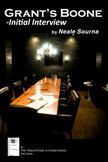 Grant's Boone - Initial Interview Sourna, Neale
Grant's Boone - Initial Interview Sourna, NealeAvailable in: eBook - PDF
$3.50
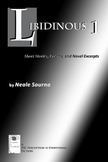 Libidinous 1: Short Stories, Poems, and Novel Excerpts Sourna, Neale
Libidinous 1: Short Stories, Poems, and Novel Excerpts Sourna, NealeAvailable in: eBook - PDF
$4.50
![Tenure [M/F/M]](https://i.gr-assets.com/images/S/compressed.photo.goodreads.com/hostedimages/1423757974i/13667960.jpg) Tenure [M/F/M] Sourna, Neale
Tenure [M/F/M] Sourna, NealeAvailable in: eBook - PDF
$2.97
![Tenure [M/M/M]](https://i.gr-assets.com/images/S/compressed.photo.goodreads.com/hostedimages/1423757974i/13667961.jpg) Tenure [M/M/M] Sourna, Neale
Tenure [M/M/M] Sourna, NealeAvailable in: eBook - PDF
$2.97
 Dez at the Silver Pole Sourna, Neale
Dez at the Silver Pole Sourna, NealeAvailable in: eBook - PDF
$1.97
 Dia's Team Bang (3) Sourna, Neale
Dia's Team Bang (3) Sourna, NealeAvailable in: eBook - PDF
$5.97
 Hesitation Sourna, Neale
Hesitation Sourna, NealeAvailable in: eBook - PDF
$1.97
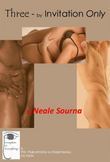 Three - By Invitation Only Sourna, Neale
Three - By Invitation Only Sourna, NealeAvailable in: eBook - PDF
$2.99
![Hobble [An Adult Fiction]](https://i.gr-assets.com/images/S/compressed.photo.goodreads.com/hostedimages/1423757974i/13667966.jpg) Hobble [An Adult Fiction] Sourna, Neale
Hobble [An Adult Fiction] Sourna, NealeAvailable in: eBook - EPUB
$6.00
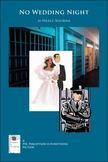 No Wedding Night Sourna, Neale
No Wedding Night Sourna, NealeAvailable in: eBook - PDF
$0.99
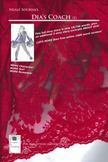 Dia's Coach (1) Sourna, Neale
Dia's Coach (1) Sourna, NealeAvailable in: eBook - PDF
$4.97
![Temple and Silent Tommy: Bedrooms [A Post Second World War (WWII) Love Story/Novel Excerpt]](https://i.gr-assets.com/images/S/compressed.photo.goodreads.com/hostedimages/1423757974i/13667969.jpg) Temple and Silent Tommy: Bedrooms [A Post Second World War (WWII) Love Story/Novel Excerpt] Sourna, Neale
Temple and Silent Tommy: Bedrooms [A Post Second World War (WWII) Love Story/Novel Excerpt] Sourna, NealeAvailable in: eBook - PDF
$1.00
 Neale Sourna's SexSinger: Cunnilingus_How to Give Head (Oral Sex and Eating Pussy), for Giving Women Orgasms of Cuntlicious Joy! Info and Sex Games! Sourna, Neale
Neale Sourna's SexSinger: Cunnilingus_How to Give Head (Oral Sex and Eating Pussy), for Giving Women Orgasms of Cuntlicious Joy! Info and Sex Games! Sourna, NealeAvailable in: eBook - PDF
$3.00
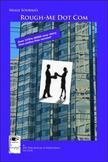 Rough-Me Dot Com Sourna, Neale
Rough-Me Dot Com Sourna, NealeAvailable in: eBook - PDF
$1.50
 The Freelancer Sourna, Neale
The Freelancer Sourna, NealeAvailable in: eBook - PDF
$1.00
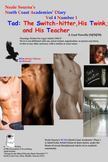 NCADv4n1--North Coast Academies' Diary, Vol 4 #1--Tad: The Switch-hitter, His Twink, and His Teacher--A Lust Novella (M/M/M) Sourna, Neale
NCADv4n1--North Coast Academies' Diary, Vol 4 #1--Tad: The Switch-hitter, His Twink, and His Teacher--A Lust Novella (M/M/M) Sourna, NealeAvailable in: eBook - PDF
$4.00
 Neale Sourna's North Coast Academies' Journal 1, Neale Sourna's North Coast Academies' Diary Vol. 1-3 Compiled Sourna, Neale
Neale Sourna's North Coast Academies' Journal 1, Neale Sourna's North Coast Academies' Diary Vol. 1-3 Compiled Sourna, NealeAvailable in: eBook - PDF
$4.00
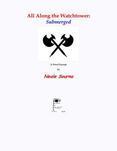 All Along the Watchtower: Submerged (A Novel Excerpt) Sourna, Neale
All Along the Watchtower: Submerged (A Novel Excerpt) Sourna, NealeAvailable in: eBook - PDF
$1.97
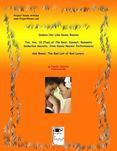 Seduce Her Like Keanu Reeves (3 Articles: Seduce, 10 Seduction Secrets, List of Bad Lovers) Sourna, Neale
Seduce Her Like Keanu Reeves (3 Articles: Seduce, 10 Seduction Secrets, List of Bad Lovers) Sourna, NealeAvailable in: eBook - PDF
$0.67
 Neale Sourna's CuntSinger: Cunnilingus: How to Give Head (Oral Sex and Eating Pussy), for Giving Women Orgasms of Cuntlicious Joy! Sourna, Neale
Neale Sourna's CuntSinger: Cunnilingus: How to Give Head (Oral Sex and Eating Pussy), for Giving Women Orgasms of Cuntlicious Joy! Sourna, NealeAvailable in: eBook - PDF
$3.00
 Neale Sourna's North Coast Academies' Diary, Volume 3, #1. 3--Ross: My Daughter's Anal Cherry Sourna, Neale
Neale Sourna's North Coast Academies' Diary, Volume 3, #1. 3--Ross: My Daughter's Anal Cherry Sourna, NealeAvailable in: eBook - PDF
$4.97
 Neale Sourna's North Coast Academies' Diary, Volume 3, #1.1--Sascha: Public Parking, Sex Squared Sourna, Neale
Neale Sourna's North Coast Academies' Diary, Volume 3, #1.1--Sascha: Public Parking, Sex Squared Sourna, NealeAvailable in: eBook - PDF
$4.97
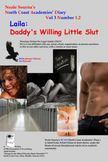 Neale Sourna's North Coast Academies' Diary, Volume 3, #1. 2--Laila: Daddy's Willing Little Slut Sourna, Neale
Neale Sourna's North Coast Academies' Diary, Volume 3, #1. 2--Laila: Daddy's Willing Little Slut Sourna, NealeAvailable in: eBook - PDF
$4.97
 Neale Sourna's North Coast Academies' Diary, Volume 3, #1--3 Sex Views: Ross, Laila, Sascha Sourna, Neale
Neale Sourna's North Coast Academies' Diary, Volume 3, #1--3 Sex Views: Ross, Laila, Sascha Sourna, NealeAvailable in: eBook - PDF
$4.00
 Neale Sourna's North Coast Academies' Diary, Volume 2, #1--Ross: Daddy's Little Whore, uh, Seductress Sourna, Neale
Neale Sourna's North Coast Academies' Diary, Volume 2, #1--Ross: Daddy's Little Whore, uh, Seductress Sourna, NealeAvailable in: eBook - PDF
$3.00
 Neale Sourna's North Coast Academies' Diary, Volume 1, #2--Yune: Suck My _ _ _ _ Sourna, Neale
Neale Sourna's North Coast Academies' Diary, Volume 1, #2--Yune: Suck My _ _ _ _ Sourna, NealeAvailable in: eBook - PDF
$1.25
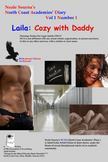 Neale Sourna's North Coast Academies' Diary, Volume 1, #1--Laila: Cozy with Daddy Sourna, Neale
Neale Sourna's North Coast Academies' Diary, Volume 1, #1--Laila: Cozy with Daddy Sourna, NealeAvailable in: eBook - PDF
$2.00
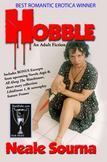 Hobble Sourna, Neale
Hobble Sourna, NealeAvailable in: eBook - PDF
$6.00
ebooks, go hastings, gohastings.com, hastings, neale sourna, ebook, adult ebooks, adult fiction,
Published on February 11, 2015 12:31




